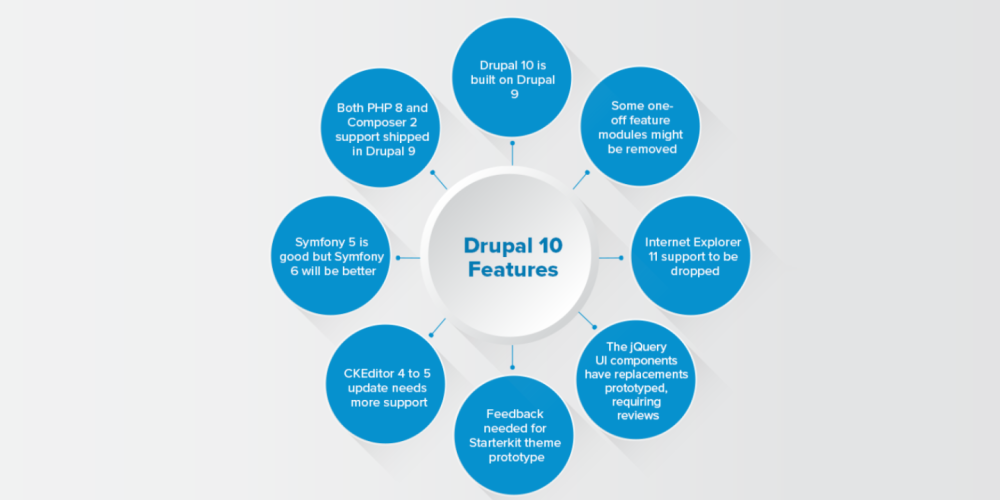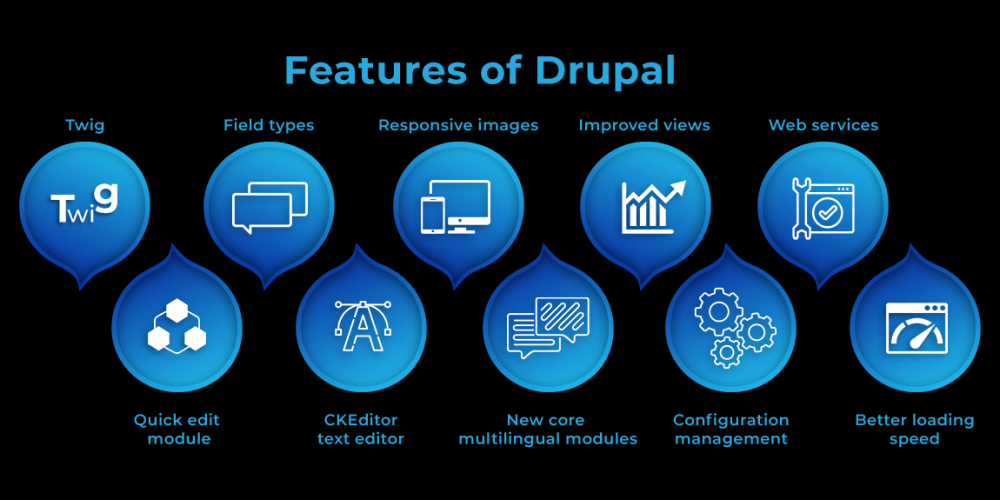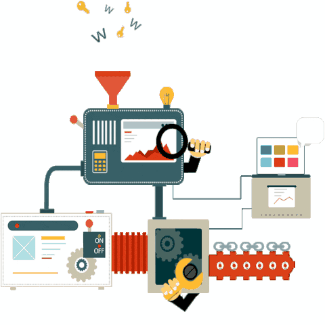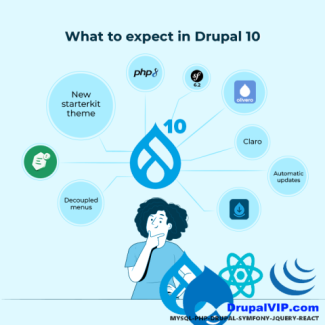Drupal 10 is the latest version of the Drupal content management system, which was released in June 2021.
Some of the key new features and improvements in Drupal 10 include:
- Improved support for web accessibility, including the ability to create accessible forms and tables.
- A new media library that allows users to easily manage and organize media files.
- A new layout builder that makes it easier to create custom layouts for pages and content.
- Improved support for multilingual sites, including a new user interface for managing translations.
- Improved support for web services and APIs, including a new decoupled architecture that allows developers to build applications that use Drupal as a back-end.
- Improved security features, including support for Content Security Policy and improved password hashing.
- Improved performance and scalability, including support for PHP 8 and improved caching.
- The integration with CKEditor version 5 is the most critical requirement for Drupal 10. Because CKEditor 4 will be deprecated at the end of 2023, Drupal 10 should use CKEditor 5.
- Drupal core code and libraries marked as "deprecated" in Drupal 9 will be removed. When code is improved, it is likely that some other code cannot be added or retired.
- Drupal 10 will use Symfony 6, and PHP 8.1 will be the minimum supported version. This will ensure all the improvements done at the backend processing level are part of all the Drupal projects that upgrade to Drupal 10.
- Symfony 6 has improved many routing, services, locales, and multilingual aspects.
- The Automatic Updates module will ensure that important Drupal core updates are automatically applied to an existing website without requiring any development effort.
- Drupal 10 will not be compatible with Internet Explorer 11.
- The jQuery UI could eventually be replaced by modern JavaScript components.
A few modules that are redundant or are not widely used will be removed from the Drupal 10 core.
These modules will be moved to the Contributed Module space for consistency.
- Aggregator - Gathers and displays syndicated content from external sources (RSS, RDF, and Atom feeds).
- QuickEdit - Content editing in-place.
- HAL - Uses Hypertext Application Language to serialize entities.
- Activity Tracker - Allows users to keep track of recent content.
- RDF - Adds metadata to pages so that other systems can understand their properties.
- Forum - Offers discussion boards.
Overall, Drupal 10 is a significant improvement over previous versions of Drupal, with many new features and improvements that will help make it easier for developers and content editors to create and manage high-quality websites.




